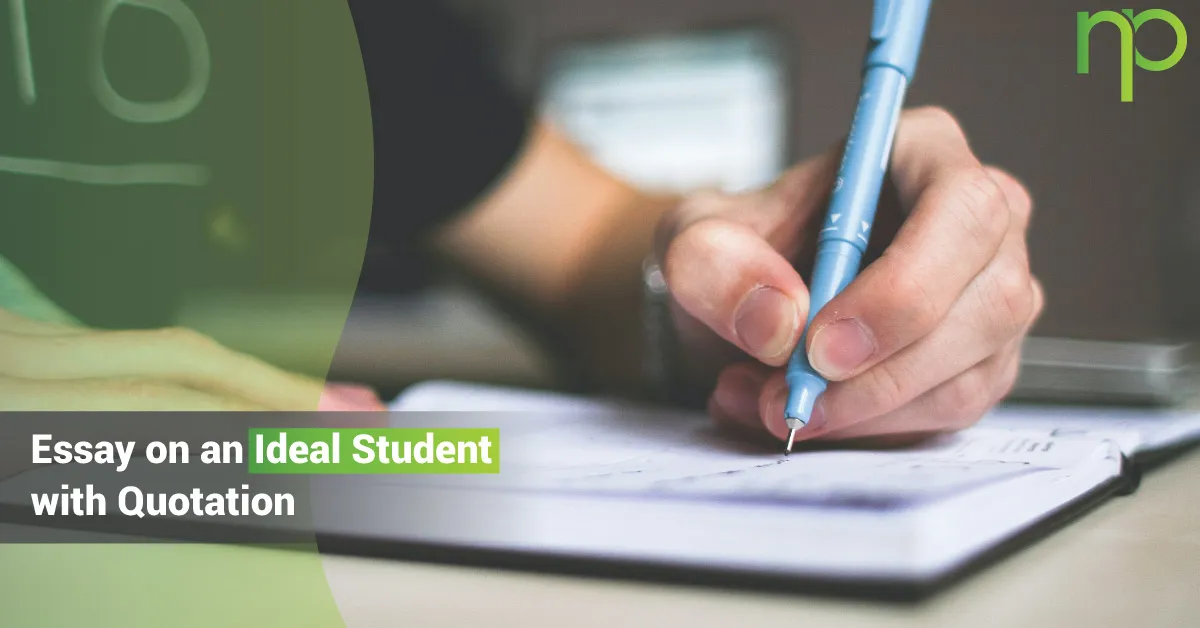
- November 17, 2023
- ubaidah khan
- 0
In the dynamic geography of education, the conception of an ideal pupil extends beyond academic prowess to encompass rates that shape a well-rounded, responsible, and ethical existence. An ideal pupil isn’t solely defined by grades but is characterized by a commitment to literacy, integrity, and a positive influence on peers. In this essay, we explore the attributes that define an ideal pupil and the impact they can have on their educational trip and beyond.
Commitment to Learning:
At the heart of an ideal pupil lies an unvarying commitment to literacy. This commitment transcends the pursuit of high grades; it reflects a genuine curiosity, a thirst for knowledge, and a passion for nonstop enhancement. An ideal pupil approaches education not as a bare demand but as an occasion for intellectual growth and particular development.
“The greatest glory in living lies not in never falling but in rising every time we fall.” (Nelson Mandela)
Active Participation in Class:
Ideal scholars laboriously engage in classroom conversations, ask thoughtful questions, and contribute meaningfully to the literacy terrain. They view the classroom as a dynamic space for collaboration and exchange of ideas, fetching that literacy isn’t a one-way process but a collaborative bid. This active participation not only enriches their understanding but elevates the educational experience for the entire class.
“The ideal student is curious, creative, and passionate about learning. The best students are those who never stop learning.” (Richard Branson)
Adaptability in the Face of Challenges:
The trip of education is riddled with challenges, be it complex assignments, examinations, or the demands of a rigorous class. An ideal pupil demonstrates adaptability, facing challenges with a positive mindset, and viewing lapses as openings for growth. They understand that failure isn’t a stumbling block but a stepping gravestone towards enhancement.
“The ideal student would be one who was not working for grades but was working because he was interested in the work and not trying to compete with other students.” (Carl David Anderson)
Integrity and Ethical Conduct:
Integrity is a hallmark of an ideal student. They approach their academic liabilities with honesty and uphold ethical norms in all aspects of their educational trip. Plagiarism, cheating, and lanes are contrary to their principles. The ideal student understands that true success is erected on a foundation of integrity and ethical conduct.
Balancing Academics and Adulterous Conditioning:
While academics are a central focus, an ideal student recognizes the significance of a holistic education. They laboriously share in adulterous conditioning, whether in sports, trades, or community service. Balancing academics with different interests not only contributes to particular growth but also fosters a well-rounded perspective on life.
“You are always a student, never a master. You have to keep moving forward.” (Conrad Hall)
Positive Influence on Peers:
An ideal student isn’t only committed to their growth but also uplifts their peers. They inspire through their work heritage, encourage collaboration, and foster a positive and inclusive atmosphere. The ideal student understands that success isn’t a solitary pursuit but a collaborative achievement where everyone benefits from a probative and cooperative terrain.
Leadership and Initiative:
Leadership rates are integral to the profile of an ideal student. Whether formally appointed or arising organically, they take action in group systems, offer formative results, and lead by illustration. Their leadership style is inclusive, motivating others to contribute their stylish and fostering a sense of concinnity and purpose.
“Education is not preparation for life, Education is life itself.” (John Dewey)
Respect for Preceptors and Peers:
Respect is the foundation of the ideal student’s character. They treat preceptors, peers, and staff with courtesy, fetching the value each existence brings to the educational community. Regardful behavior creates a positive atmosphere, conducive to literacy and particular development.
A Growth Mindset:
An ideal student embodies a growth mindset, embracing challenges and seeing trouble as a path to mastery. They view feedback as an occasion for enhancement and aren’t dissuaded by original difficulties. This mindset not only propels their academic success but prepares them for a future where rigidity and adaptability are consummate.
“Hard work without talent is a shame, but talent without hard work is a tragedy.” (Robert Half)
Conclusion Shaping Unborn Leaders In conclusion, the ideal student is a dynamic existent who goes beyond the conventional description of academic success. They’re committed to literacy, flexible in the face of challenges, and embody rates of integrity, leadership, and respect. These attributes not only contribute to particular development but also lay the foundation for responsible citizenship and unborn leadership. As preceptors, peers, and society at large, it’s essential to fete and nurture these rates in scholars. By fostering a terrain that values holistic development and character structure, we contribute to the civilization of individuals who not only exceed academically but also shape a future marked by ethical leadership and positive benefactions to society.